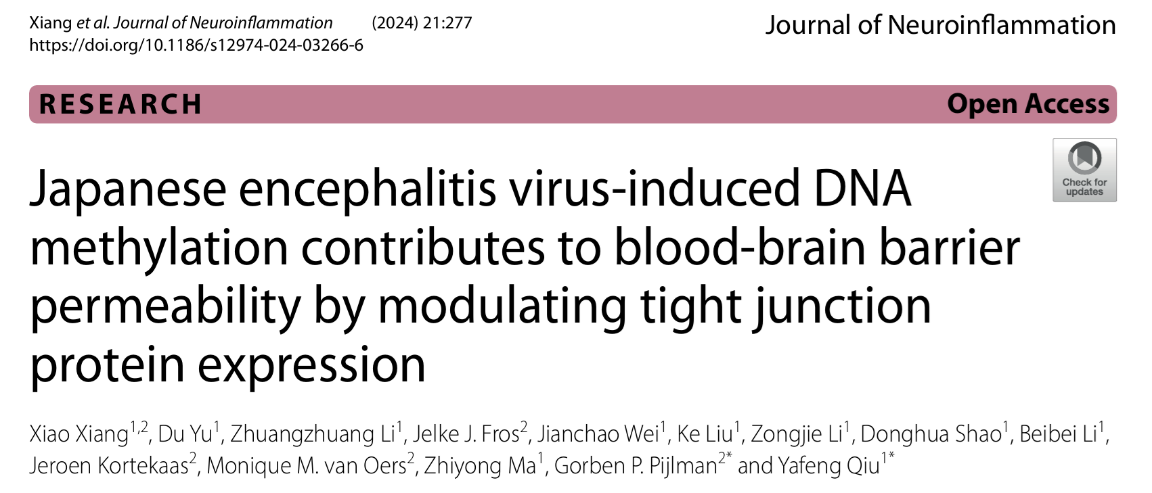
Recently, innovation team of Early Warning and Prevention of Swine Infectious Disease of SHVRI CAAS elucidated the mechanism by which Japanese encephalitis virus (JEV) infection regulates blood-brain barrier permeability through DNA methylation. The findings have been published in the Journal of Neuroinflammation.

Background
JEV, as a mosquito-borne zoonotic pathogen is a leading cause of viral encephalitis in Southeast Asia. DNA methylation, an important epigenetic modification, plays an important role in pathogenesis of various diseases. To determine the role of DNA methylation associated with JEV infection would provide the insightful information of viral pathogenesis.
Research Progress
This study demonstrates that JEV infection globally increases DNA methylation levels in mouse brains compared with the mock group. Important, DNA hypermethylation suppressed the expression of molecules involved in the tight junction signaling pathway, thereby increasing blood-brain barrier permeability. These findings provide novel perspectives on the pathogenic mechanisms of Japanese encephalitis and offer a theoretical foundation for developing new therapeutic strategies.
Funding
Xiao Xiang, a joint doctoral student of SHVRI CAAS and Wageningen University (WU), is the first author of the paper. Dr. Prof. Yafeng Qiu from SHVRI, and Dr. Gorben P. Pijlman from WU, are the co-corresponding authors. This study was supported by the National Key Research and Development Program of China and the Science and Technology Innovation Project of the CAAS.

